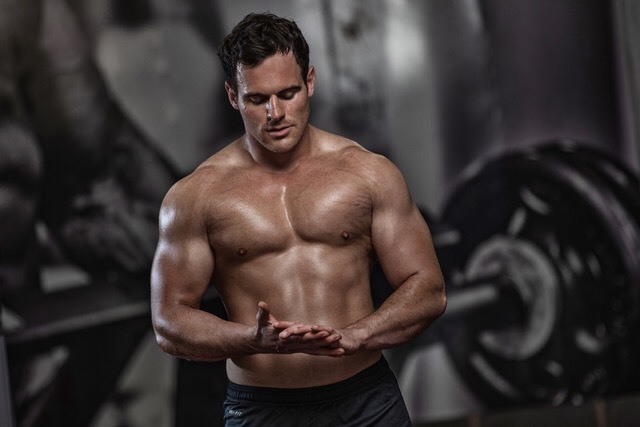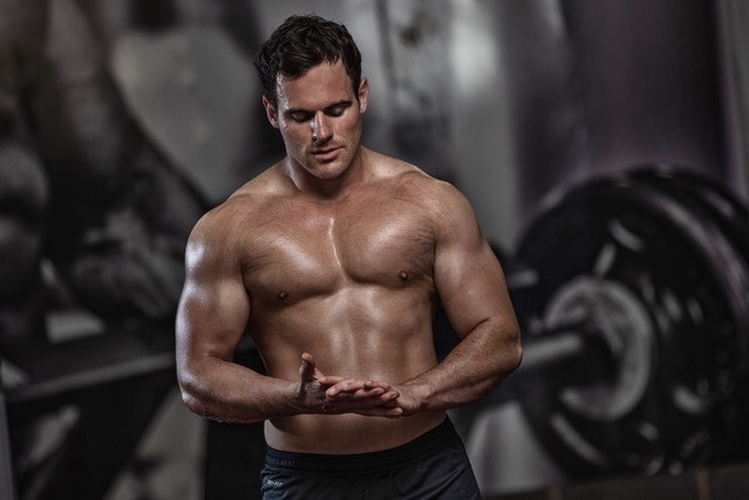From targets to time frames, Ultimate Performance trainers share their secrets
With January over and fitness resolutions flagging, we asked five personal trainers how to lose weight. With all based at Ultimate Performance, famed for its stunning body transformations and celebrity clientele, needless to say they know their stuff.
Over to the experts…
‘Take a sustainable long-term approach to your training and diet’ - Louis, UP Cheshire
A drastic approach to losing weight might work for a short time, but it’s unlikely to hold up long term - that’s why planning your approach properly will really pay off.
Understand your method and you’re more likely to stick to those well-intentioned (but often short-lived) fitness goals.
Here are some examples of approaches that probably won’t last:
- Very low/no carbohydrate diets: This is likely to cause more cravings and a lack of energy, especially if you ate a lot of comfort foods over the festive season
- Complete dietary change: Forcing yourself to eat foods you wouldn’t normally is not sustainable
- Atkins/Keto/Cabbage Soup Diet: They’re called ‘fad diets’ for a reason!
One of the simplest dietary approaches we use with clients at Ultimate Performance is simply reducing or eliminating processed food and ‘products’ in favour of natural ‘whole’ foods. These three simple points will go a long way to helping you become fitter, healthier and lose weight alongside a sustainable training programme:
- If it grows from the ground…eat it *vegetables, good sources of carbohydrate and fruits*
- If it swims, flies or runs…eat it *meat, fish, poultry*
- If it is made in a factory (a product) rather than grown on a farm (fresh produce)…don’t eat it

‘Find an expert to create a plan that works for you’ - Anthony, UP Manchester
Early on in the New Year is probably the best time of the year to set yourself some new goals. Sadly, data shows that almost nine in ten people abandon their fitness resolutions by the end of January - and many do more harm than good with their body when it comes to losing weight.
Don’t be one of them!
While setting yourself a realistic-outcome goal is not an easy task (Is your weight loss achievable? Is the timeframe adequate?), setting yourself behavioural goals - the positive behaviours and habits that will help you get results - is even harder.
Delegating this to a professional who can put together the most efficient and effective plan will leave you free to focus on following it. And, not only will get plenty of education and support throughout the process, you’ll know how to sustain the progress you have made once you have achieved your goals.
As for next year’s goals? You won’t need any.

‘Weight loss comes down to energy balance’ - Aroosha, UP Manchester
When it comes to fat loss (or any goal for that matter), you need three key things:
- A measurable goal that is realistic
- A plan of action to get you to that goal
- To consistently follow it until you get there
Fat loss will only occur with a caloric deficit in place. That’s why our approach with UP clients is to create an energy deficit by eating less and moving more.
Specifically, we incorporate weight training workouts at least three times a week because this has proven time and again to be very beneficial for body composition and fat loss goals.
It’s also important to remember that the more you move outside the gym the better. Get your steps up during the day any time you can, especially if you are largely sedentary at work. Aiming for a minimum of 10,000 steps a day will really help boost your fat loss efforts.

‘Measure your progress and be consistent’ - Christian, UP Manchester
New Year makes people prioritise their fitness goal as a ‘new start’ but really it can be done any time. Just remember that having a realistic target and time frame, whenever that may be, is crucial to fat loss - as is having measurable goals.
For fat loss, these will focus on calorie intake and ensuring you are in a deficit: this can come from eating less than your body requires and expending more energy than you take in, mainly through weight training.
With these basic principles in place, progress is inevitable. The hard part then is being consistent. That’s why having a personal trainer or dedicated training partner to make you accountable is so valuable.
At UP, we also help clients to make behavioural changes - like proactive habits - to help ensure they stay on track.

‘Ensure you are eating enough protein’ - Howard, UP Cheshire
When it comes to improving your body composition and losing weight, we’re actually referring to losing fat tissue. For this to happen, you need to consume fewer calories than you use throughout the day - whether through exercise or general activity.
To make help you lose fat tissue and retain lean muscle tissue, however, it’s important to ensure your daily protein intake is sufficient.
Protein is king when it comes to body composition and recovery from exercise. It’s also the number 1 macronutrient in ensuring you feel satisfied in between your meals, which will keep hunger at bay and make your diet more sustainable so you’re more likely to stay focused on your goals.
Where people go off track is when hunger and cravings set in and they reach for convenience foods that are often heavily processed, higher in calories and lower in nutrients. A good quality protein at every meal can help prevent this happening.
Eggs for breakfast, chicken for lunch, steak or fish in the evening…these all represent a good variety, also ensuring you have a broad spectrum of amino acids (different types of proteins).
Add as much fibre-rich green vegetables as you can to each meals, as they are low in calories and fill you up. You can include some fruits throughout the day as snacks for nutrients, fibre and something sweet.

Want expert help to achieve your own weight loss transformation in 2020? Speak to Ultimate Performance.













